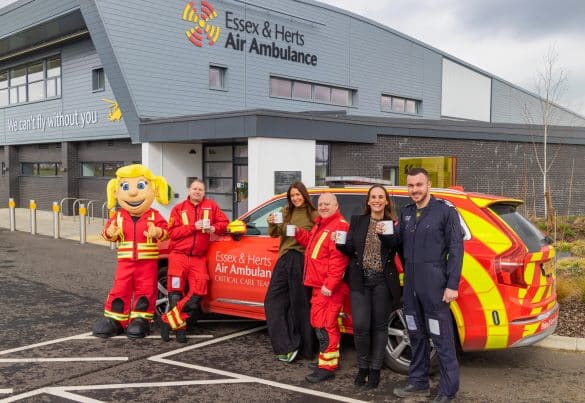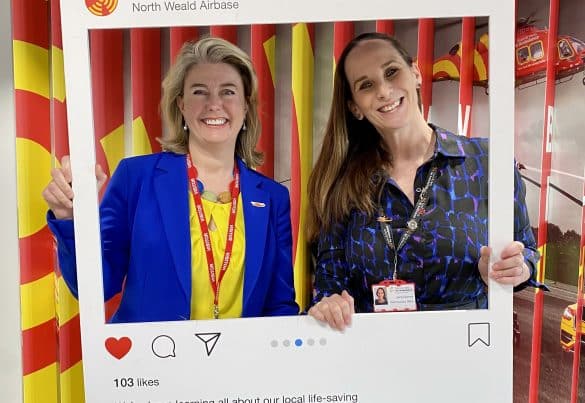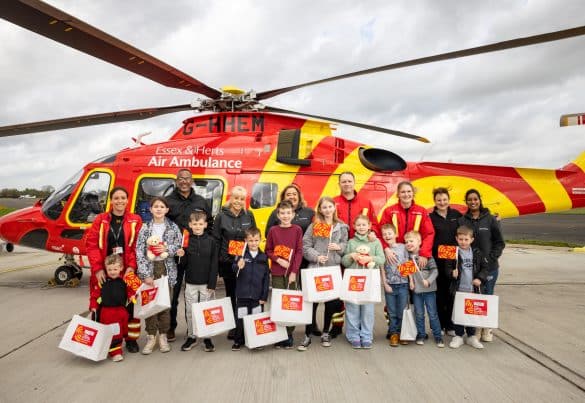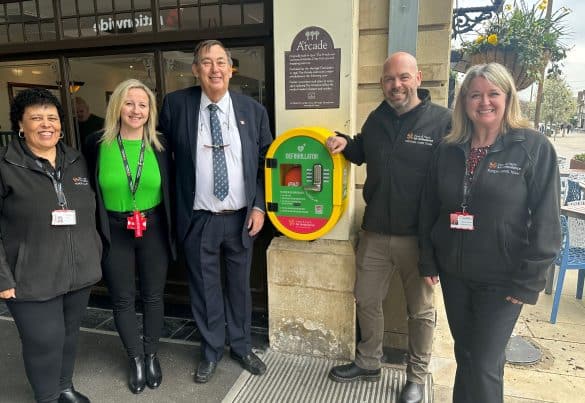SHARE
What is your role at EHAAT? How long have you been with us?
I have been working with EHAAT since 2015 as an Emeritus Flight Paramedic but I’ve been here full time since October 2016 as Clinical Operations Manager/Critical Care Paramedic.
As Clinical Operations Manager, I provide a link between the Operations Director and Clinical Director as well as working very closely with the Clinical Managers. My main roles and responsibilities include assisting in maintaining daily operations, managing our fleet and larger pieces of equipment. Some of the projects I have been involved in since taking up the post included transitioning the service to dual pilot operations, training and roll out of the new Augusta Westland AW169 helicopter, and have just completed a future proofing change of rapid response vehicles from Vauxhalls and Skoda’s to a fleet of four Volvo xc90s. Along with the new aircraft I moved the service to a new medical bag system, I have been working with some of the clinical team on the next generation of bespoke medical bags that we hope to go live with later this year. In March we started carrying blood on board, so was tasked to source equipment such as blood boxes and a blood warmer, we selected the MEQU blood warmer of which we are the first organisation in UK to use. It’s non-stop.
Tell me about your career to date…
I joined the Royal Navy in 1989 and left in 1997. After that I worked in Accident and Emergency Departments and spent some time running a family business, before deciding to go back into education. I completed an access to higher education course which allowed me to undertake and gain a BSc (hons) in Paramedic Science at the University of Hertfordshire in 2003.
On completion of my University course I joined London Ambulance Service where I was based in the City and Hackney area for most of my career. My first HEMS role was with London’s Air Ambulance in 2008 and was also fortunate enough to return and spend another year working on the Physicians Response Unit (medical response car).
I spent five years in Metropolitan Police as a Special Constable in Hackney. I was responsible for starting and running the Joint Response Units in London, which is now an initiative being mirrored across the UK. I worked within the emergency planning resilience and response department as a JESIP instructor for just over two years, this involved teaching Police, Fire and Ambulance Commanders the JESIP principles, leading me on to my role here.
Which days do you enjoy more? Clinical Operations Manager or Critical Care Paramedic?
I enjoy them both, I like the variation of each day. They are both challenging in very different ways. Remaining clinical and providing world class pre-hospital care as a critical care paramedic is still important to me, being out on the ground doing the job allows me to see first-hand any issues that may arise within the operation. Because I’m seeing it, doing it and speaking to everyone, I get to know what the problems and concerns are and what we’re doing well or where we could make improvements. For example, a member of the team could highlight something that they feel is maybe not working or could be improved, and because I undertake regular shifts, this can help me to resolve the issue, or as a team we can discuss and find an alternative and possibly more efficient solution. Remaining operational allows me to maintain my clinical competency, it also stops me from becoming or feeling detached from the operational and clinical aspects of the job.
Do you have particular stand out mission or moment with EHAAT?
That’s a difficult one – I don’t think I do actually as they all stand out for one reason or another. You do remember some more vividly than others and more often or not you are reminded about cases, for example if they are high profiles cases that get picked up by the news. I’m always aware that regardless of what the incident is that we attended, that it will always be remembered by patients and those involved.
What do you do when you’re not working?
I have a busy family life! I have two young girls and a large 10 month old puppy that keep me very busy. My wife is also a paramedic, so mummy is a paramedic on a ‘nee-naw’, and daddy is a paramedic on a ‘hop-copter.’ I also play football each week with some of dads from our children’s school.
What’s next in your career?
I am extremely happy where I am and have no plans to go anywhere else. I came into this job for longevity, and not to use a stepping stone. This is a dream job for me and feel privileged to be part of such a fantastic charity. My role is consistently challenging and that is what drives me and I don’t ever see this organisation slowing down as its always striving to be at the forefront of pre-hospital care. The amount of work that goes into keeping this running is nothing short of phenomenal.
Join our mailing list
Join the community and recieve all the latest news and updates straight to your inbox.






